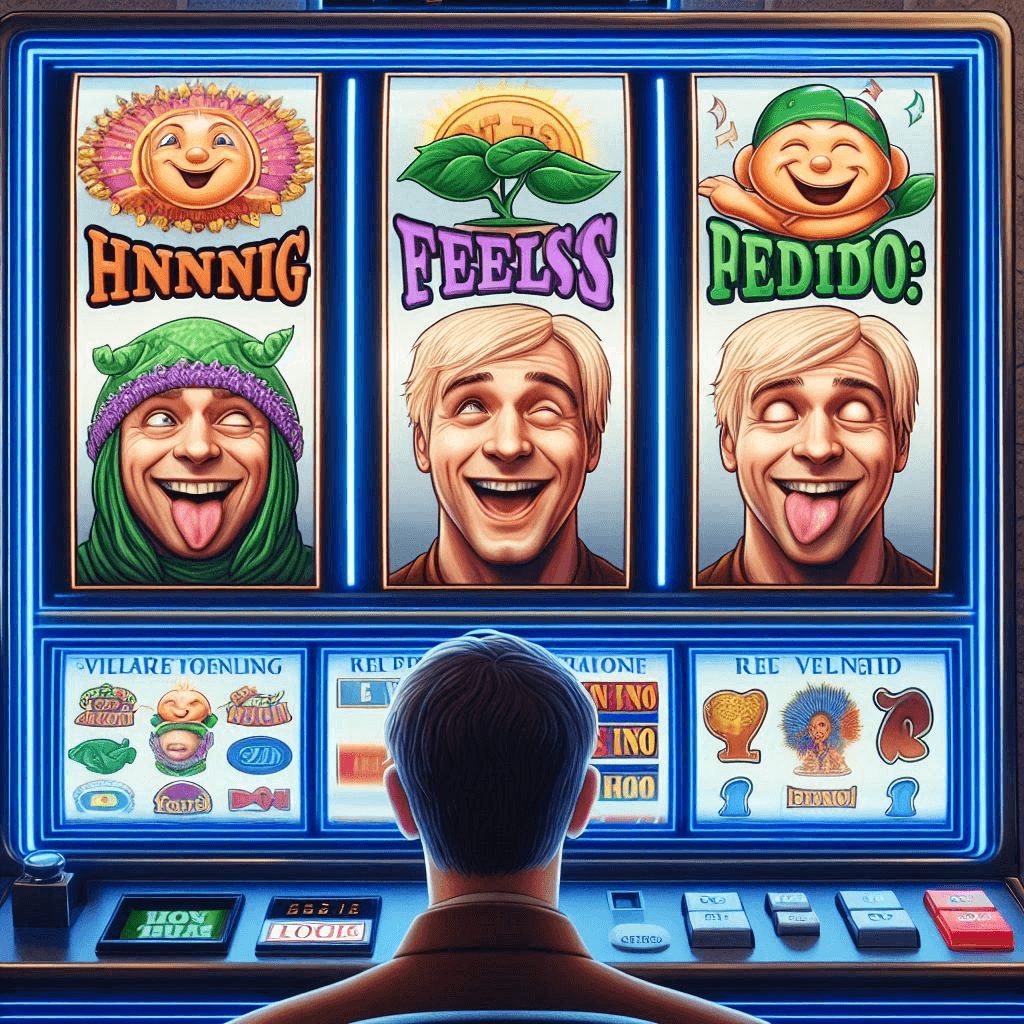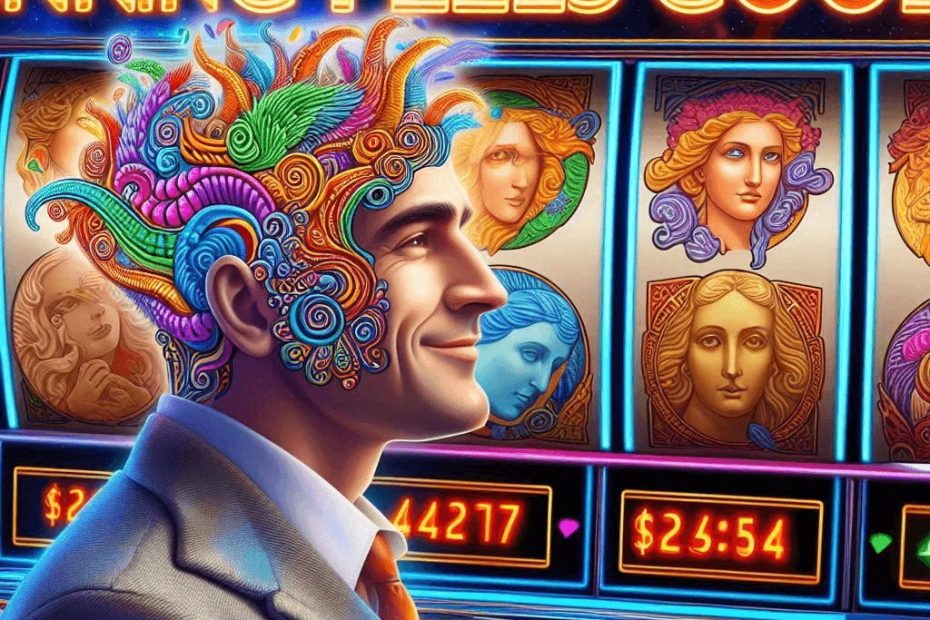Slot machines have captivated players around the world for decades, drawing them in with the promise of excitement and the allure of big wins. While the mechanics of slot machines are straightforward, the psychology behind why people are drawn to them is complex and multifaceted. This article delves into the psychological factors that influence slot machine players, exploring the thrill of winning, the effects of design and sound, and the emotional and cognitive aspects of gambling behavior. By understanding these elements, we can gain insight into why slot machines remain one of the most popular forms of entertainment in casinos and online gaming platforms.
The Allure of Slot Machines
Instant Gratification
One of the primary reasons players are drawn to slot machines is the instant gratification they provide. Unlike other games that require skill and strategy, it offer immediate results with each spin.
- Immediate Feedback: Players receive instant feedback in the form of wins, losses, or near-misses, creating a sense of excitement and anticipation.
- Low Barrier to Entry: Slot machines require no previous knowledge or skill, making them accessible to a wide audience. This ease of play attracts casual gamers as well as seasoned players.
The Thrill of Winning
Winning at slots can trigger powerful emotional responses, reinforcing the appeal of the game. The thrill of winning, even small amounts, can create a cycle of behavior that keeps players engaged.
- Dopamine Release: Winning activates the brain’s reward system, releasing dopamine, a neurotransmitter associated with pleasure and reward. This biochemical response reinforces the desire to play and win again.
- Variable Rewards: Slot machines often employ a variable reward schedule, meaning wins occur unpredictably. This unpredictability can lead to a stronger psychological attachment to the game, as players continue to chase their next win.
The Impact of Design and Sound
Visual and Auditory Cues
The design of slot machines plays a critical role in enhancing the player’s experience. Bright colors, engaging themes, and immersive sound effects contribute to the overall appeal.
- Graphics and Themes: Modern slot machines feature elaborate graphics and themes that transport players to different worlds, enhancing their gaming experience. Popular themes can include adventure, fantasy, and even pop culture references.
- Sound Effects: The sounds of spinning reels, winning jingles, and celebratory music contribute to the excitement of playing. These auditory cues can heighten emotional responses and reinforce the sense of accomplishment upon winning.
The Role of Near-Misses
Near-miss scenarios, where players come close to winning but fall short, are a common feature in slot machines. These moments can be particularly impactful on a player’s psychology.
- Encouragement to Continue: Near-misses can create a false sense of hope, encouraging players to keep spinning in pursuit of a win. This phenomenon is often referred to as “losses disguised as wins.”
- Cognitive Dissonance: Players may rationalize their continued play after a near-miss, believing that they were close to winning and thus more likely to win in the future.
The Emotional Rollercoaster of Slot Play
The Highs and Lows of Gambling
Slot machine players often experience a wide range of emotions during their gaming sessions. These emotional highs and lows can significantly influence behavior and decision-making.
- Euphoria of Winning: Winning, especially on a large scale, can induce feelings of euphoria and excitement. This emotional high can reinforce the desire to continue playing.
- Frustration and Disappointment: Conversely, losing streaks can lead to feelings of frustration and disappointment. Players may respond to these emotions by increasing their bets in an attempt to recoup losses, which can lead to a cycle of irrational behavior.


The Role of Social Interaction
While slot machines are often seen as solitary pursuits, social interaction can play a significant role in the gaming experience.
- Shared Experiences: Players may enjoy discussing their wins and losses with friends or fellow players, creating a sense of community and shared experience.
- Competitive Element: Some players thrive on the competitive aspect of gambling, comparing their successes to others and seeking to outperform friends or peers.
Cognitive Biases in Slot Machine Play
The Gambler’s Fallacy
The gambler’s fallacy is a common cognitive bias that affects many slot machine players. This fallacy involves the belief that past outcomes can influence future results.
- Misinterpretation of Randomness: Players may believe that if a machine hasn’t paid out in a while, it is “due” for a win. This misunderstanding of randomness can lead to misguided betting strategies.
- Chasing Losses: As players experience losses, they may increase their bets in an attempt to recover, believing that their luck will change. This behavior can lead to significant financial losses.
Illusion of Control
Many players develop an illusion of control over the outcome of their spins. This belief can stem from various factors, including the way games are presented.
- Skill Perception: Some players may feel that their choices, such as timing their spins, can influence the outcome. This illusion can provide a sense of empowerment and increase engagement.
- Superstitions: Players may develop superstitions or rituals that they believe will enhance their chances of winning, further reinforcing their sense of control.
The Social and Environmental Factors
The Casino Environment
The design and atmosphere of casinos play a significant role in shaping player behavior. Casinos are engineered to create an immersive experience that encourages prolonged play.
- Lighting and Sound: Bright lights, energetic sounds, and strategically placed machines create an environment that stimulates excitement and engagement.
- Lack of Clocks: Many casinos intentionally avoid clocks and windows to prevent players from tracking time, encouraging longer gaming sessions.
Marketing and Promotions
Casinos and online gaming platforms employ various marketing strategies to attract and retain players.
- Loyalty Programs: Many casinos offer loyalty programs that reward players for their activity, incentivizing continued play.
- Promotional Bonuses: Free spins, bonuses, and promotional events create additional opportunities for players to win, enhancing the overall appeal of slot machines.
The Role of Personal Factors
Individual Differences
Each player brings their unique motivations, preferences, and experiences to the gaming experience. Understanding these individual differences can provide insight into why some players are more drawn to slots than others.
- Risk Tolerance: Players with higher risk tolerance may be more inclined to play high-volatility slots, while those with a lower risk tolerance may prefer low-volatility options.
- Emotional State: A player’s emotional state can influence their gaming behavior. Those seeking an escape or distraction may be more likely to engage in prolonged play.
Player Demographics
Demographic factors, such as age, gender, and socioeconomic status, can also influence slot machine preferences and behavior.
- Age Differences: Younger players may be more attracted to modern video slots with advanced graphics and features, while older players may prefer classic machines.
- Gender Differences: Research suggests that men and women may have different motivations for playing slots, with men often seeking competition and women seeking social interaction.
The Impact of Technology on Slot Play
Online Slots
The rise of online casinos has transformed the landscape of slot machine play. Online game offer convenience and accessibility, attracting a new generation of players.
- Variety of Games: Online platforms provide an extensive selection of games, catering to diverse tastes and preferences.
- Social Features: Many online slots incorporate social features, allowing players to connect and share experiences, enhancing the sense of community.
Mobile Gaming
The proliferation of smartphones has led to a surge in mobile slot gaming. Players can now enjoy their favorite slots anytime, anywhere.
- Convenience and Accessibility: Mobile offer convenience, allowing players to engage in gaming sessions during their daily routines.
- New Features: Mobile slots often incorporate touch-screen features and innovative mechanics, enhancing the overall gameplay experience.
Responsible Gambling Practices
Understanding Responsible Gambling
As the popularity continues to grow, it is essential to promote responsible gambling practices. Understanding the psychology behind slot machine play can help players make informed decisions.
- Setting Limits: Players should establish limits on time and money spent on gambling to prevent excessive play.
- Self-Exclusion Programs: Many casinos offer self-exclusion programs that allow players to restrict their access to gaming facilities.
Recognizing Problem Gambling
Recognizing the signs of problem gambling is crucial for maintaining a healthy relationship with gaming.
- Signs of Problem Gambling: Indicators may include chasing losses, neglecting responsibilities, and experiencing emotional distress related to gambling.
- Seeking Help: Players who recognize these signs should seek help from support services or counseling to address their gambling behavior.
Conclusion
The psychology of slot machine players is a complex interplay of emotional, cognitive, and social factors. Understanding the thrill of winning, the impact of design and sound, and the cognitive biases that influence behavior can provide valuable insights into why players are drawn to slots. As the gaming industry continues to evolve, promoting responsible gambling practices will be essential in ensuring that players can enjoy the excitement of slot machines while maintaining a healthy relationship with gambling.
FAQs
-
Why do people enjoy playing slot machines?
People enjoy playing slot machines for various reasons, including the thrill of winning, instant gratification, engaging themes, and the accessibility of the game.
-
How do slot machines create excitement?
Slot machines create excitement through vibrant graphics, immersive sound effects, and the anticipation of winning with each spin. The unpredictable nature of wins adds to the thrill.
-
What is the gambler’s fallacy?
The gambler’s fallacy is the belief that past outcomes can influence future results. For example, a player may think a machine is “due” for a win after a series of losses, leading to misguided betting behavior.
-
How can players practice responsible gambling?
Players can practice responsible gambling by setting limits on their time and money spent on gaming, recognizing signs of problem gambling, and seeking help if needed.
-
What role does technology play in slot machine gaming?
Technology has transformed slot machine gaming through online platforms and mobile apps, offering players a wider variety of games, convenience, and innovative features that enhance the overall experience.
